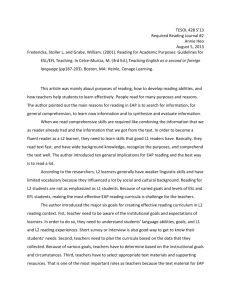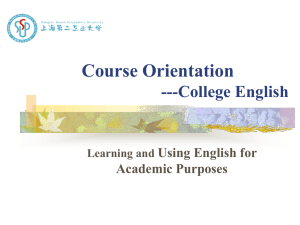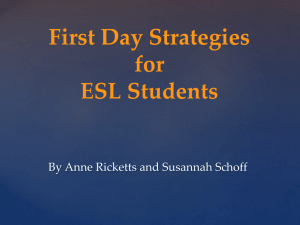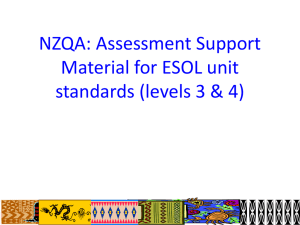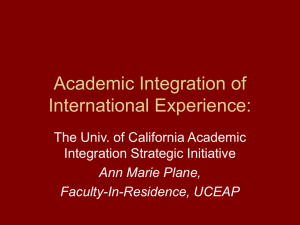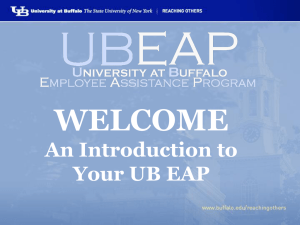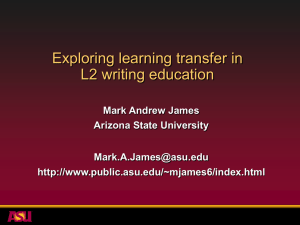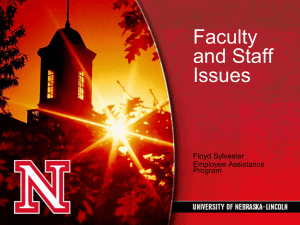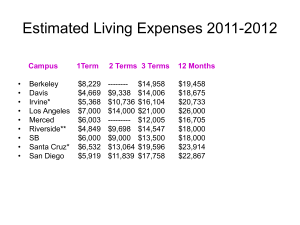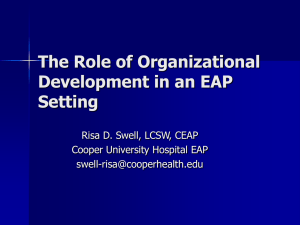Teaching Strategies that Help EAP Learners
advertisement
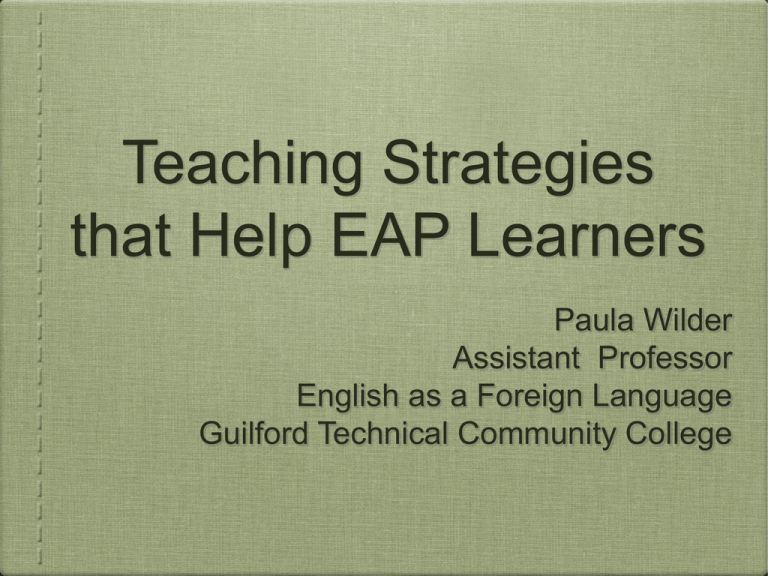
Teaching Strategies that Help EAP Learners Paula Wilder Assistant Professor English as a Foreign Language Guilford Technical Community College Research Problem • EAP learners face challenges in essay writing • EAP learners deal with different grammar, sentence structure • EAP learners often have to change way of thinking as they compose/organize essays. http://anessaywriting.com/phd-dissertation-proposal/report-writing-service.htmlText THESIS Specific teaching strategies exist which will not invalidate other cultures but will demonstrate the dissimilarities and ways that pre-writing, revising, and providing feedback will help EAP students overcome cultural writing barriers. Purpose The objective is to explain cultural writing differences and present specific strategies to English instructors to help EAP learners with academic writing and general organizational guidelines. Justification http://www.susps.org/overview/numbers.html North Carolina is now ranked fifth in the nation for growth in immigrant population, so the number of EAP learners will only increase; therefore, teachers need to be equipped with specific strategies to help EAP learners write in a new cultural context. Key Terms • EAP learners • ESL • Immigrant • L1 • L2 http://www.globalpositions.com/knowgis9.html • Native speaker • Non-native speaker Literature Review Cultural Differences Specific Strategies http://en.wikipedia.org/wiki/Literature Cultural Differences • Chinese and many African countries are discouraged from including their own ideas (Leki, 1994). • Speed is encouraged and often necessary in American writing, but not in many cultures (Bell, 1997). • Spanish cultures often encourage elaborate and extensive explanations and description (D. Lorca, personal communication, July 13, 2012). • Cultural norms are not wrong -- just not the expectations for Standard Written English (Leki & Carson, 1997). Teaching Strategies • Pre-writing • Revision • Feedback http://i.ytimg.com/vi/5OYvu9cmHW0/0.jpg (Bell, 1995; Ferris and Hedgcock, 2005; Leki, 1995; Leki & Carson, 1997) Methodology Effective Strategies to Help the EAP Learner http://suite101.com/article/persuasive-essay-topics-for-academic-writing-a190343e Value of Feedback for EAP Learners 1.Students greatly appreciate and value teacher feedback, considering teacher commentary extremely important and helpful to their writing development. 2.Students see value in teacher feedback on a variety of issues, not just language errors. 3.Students are frustrated by teacher feedback when it is illegible, cryptic (e.g., consisting of symbols, circles, single-word questions, comments), or confusing (e.g., consisting of questions that are unclear, suggestions that are difficult to incorporate into emergent drafts). 4.Students value a mix of encouragement and constructive criticism and are generally not offended or hurt by thoughtful suggestions for improvement. 5.Feedback is most effective when provided at intermediate stages of the writing process. 6.Teachers should provide both encouragement and constructive criticism through their feedback. A 50/50 prescriptive guideline of positive and negative comments should be followed (p. 188-192). Ferris, D., & Hedgcock, J. (2005). Teaching ESL composition: Purpose, process, and practice (2nd ed.). Mahwah, N.J.: Lawrence Erlbaum. References • Bell, J. (1995). The relationship between L1 and L2 literacy: Some complicating factors. TESOL Journal, 29(4), 687-704. Retrieved from http://www.jstor.org/stable/3588170 • Carpenter, C., & Hunter, J. (1981). Functional exercises: Improving overall coherence in ESL writing. TESOL Quarterly, 15(4), 425-434. Retrieved from http://www.jstor.org/stable/3586483 • Ferris, D., & Hedgcock, J. (2005). Teaching ESL composition: Purpose, process, and practice (2nd ed.). Mahwah, N.J.: Lawrence Erlbaum. • Leki, I. (1995). Coping strategies of ESL students in writing tasks across the curriculum. TESOL Journal, 29(2), 235-260. Retrieved from http://www.jstor.org/stable/3587624 • Leki, I., & Carson, J. (1994). Students' perceptions of EAP writing instruction and writing needs across the disciplines. TESOL Journal, 28(1), 81-101. Retrieved from http:// www.jstor.org/stable/3587199 Questions and Discussion http://oupeltglobalblog.com/
